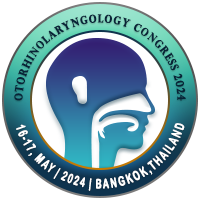
Amir Habeeb
Cambridge University Hospitals NHS Trust, United KingdomTitle: Telehealth in Treating Tinnitus – A Systematic Review and Meta-Analysis
Abstract
Introduction:
Treatment for tinnitus focusses on supportive therapies. Long waiting times on the NHS encourage telemedicine options as an alternative.
Aims:
To review the literature on telemedicine in the management of tinnitus and analyse their impact on the burden of tinnitus, long-term, anxiety, depression, insomnia and quality of life.
Methods:
PubMed, Embase, Cochrane library, Google Scholar, Scopus and Web of Science were searched. English randomised controlled trials with adult participants suffering from tinnitus were included. A random effects model looking at standardised mean differences between intervention and control groups was utilised.
Results:
Eleven randomised controlled trials were included. Nine studies looked at internet-based CBT. A Z value of 9.87, P < 0.00001 (I2 = 21%) revealed telemedicine approaches may be better at reducing
tinnitus burden compared to passive controls. When looking at insomnia a Z value of 7.79, P < 0.00001 (I2 = 0%) was achieved suggesting telemedicine options may be effective in reducing insomnia burden. Quality of Life showed no real improvement.
Conclusions:
Telemedicine options have multiple benefits but more research will be needed to conclusively say they are better than alternatives.
Biography
Amir Habeeb is a core surgical trainee that is aspiring to be an ENT surgeon. He graduated from University College London Medical School in 2019 and completed a masters in surgical sciences with a dissertation focusing tinnitus management options. Amir has a wide range of research experience publishing in multiple journals and presenting at several international and national conferences. Amir enjoys playing basketball and walking in his spare time.

